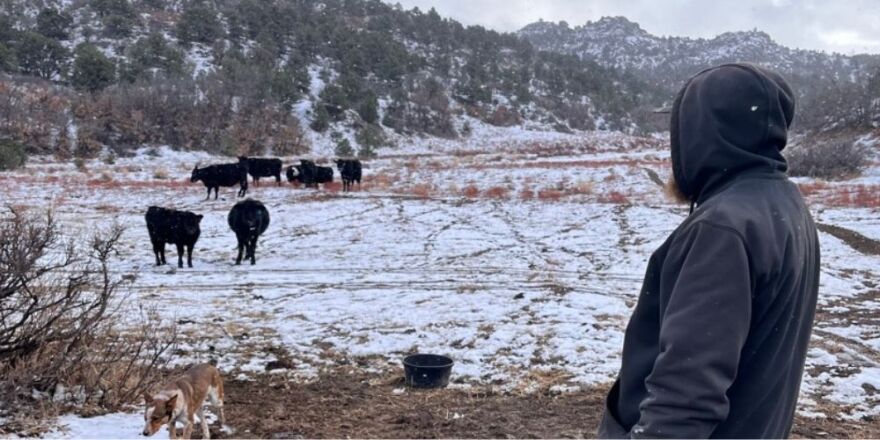Rocky Mountain states have some of the highest suicide rates in the country, and those working in agriculture are even more susceptible. There are many reasons for this, and the Colorado State Legislature is considering measures to address them.
Colorado Sun co-founder and reporter Jennifer Brown has been reporting on this mental health crisis.
The Colorado State Health Department tracks the number of suicides each year by profession and found that in five years there were 102 suicides among people whose careers are in agriculture, forestry, and some related ag professions. This makes it the fourth-highest rate of suicide in Colorado. The highest suicide rate in Colorado is for construction workers.
"This is a trend that has been on the rise for really a couple of decades, and I think people are starting to pay more attention now," said Brown.
Nationally, in rural counties, the suicide rate has gone up by 46% compared to 27% in cities.
Brown says in the farming and ranching world, something called the “cowboy up” culture could be contributing to poor mental health and suicide.
“The mentality of sucking it up, chin up, soldier on, you know, the independence and the isolation that farmers and ranchers live daily. They're not the types who generally ask for help or call a therapist. This ‘suck it up and carry on’ attitude doesn't lend itself to asking for help to deal with some serious issues like depression,” Brown explained.
Another factor that can contribute to these high rates of suicide for ranchers and farm workers is isolation.
Brown spoke with several ranchers who mentioned feeling misunderstood.
"There's a lot of feeling like no one else gets what they put up with to grow food for the rest of the country. We've got the wolf reintroduction that was actually mentioned a couple of times when I was interviewing ranchers, you know, like, 'okay, one more thing that they want to put on us,'" said Brown.
In addition to a reluctance amongst many to talk about mental health issues, Brown says there is a shortage of behavioral health care in rural areas.
She says the Colorado State Legislature is considering two bills that could address these issues.
"One would pour some money into the state Behavioral Health Administration. The other one gave the money to the Department of Ag and really to set up a work group where they would study how do you get more behavioral health care workers into rural Colorado, specifically? And also, how do you train people in those areas? One would have given money to set up a training program so that local community members could get trained in mental health prevention, and then use that to serve their area to help others," said Brown.
During the 2022 legislative session, the Department of Agriculture received an appropriation of $200,000 to dedicate to mental health programs.
Another idea discussed in the 2024 legislative session was a hotline similar to the national 988 number that you can call in mental health crises, specific to farmers and ranchers.
“They talked about ways in which Colorado farmers and ranchers if they call that number, could they speak to someone who understands their specific problems? Or should we have a different hotline that's just for farmers and ranchers?” Brown explained.
That story was shared with us via Rocky Mountain Community Radio, a network of public media stations in Colorado, Wyoming, Utah, and New Mexico including KSJD.


